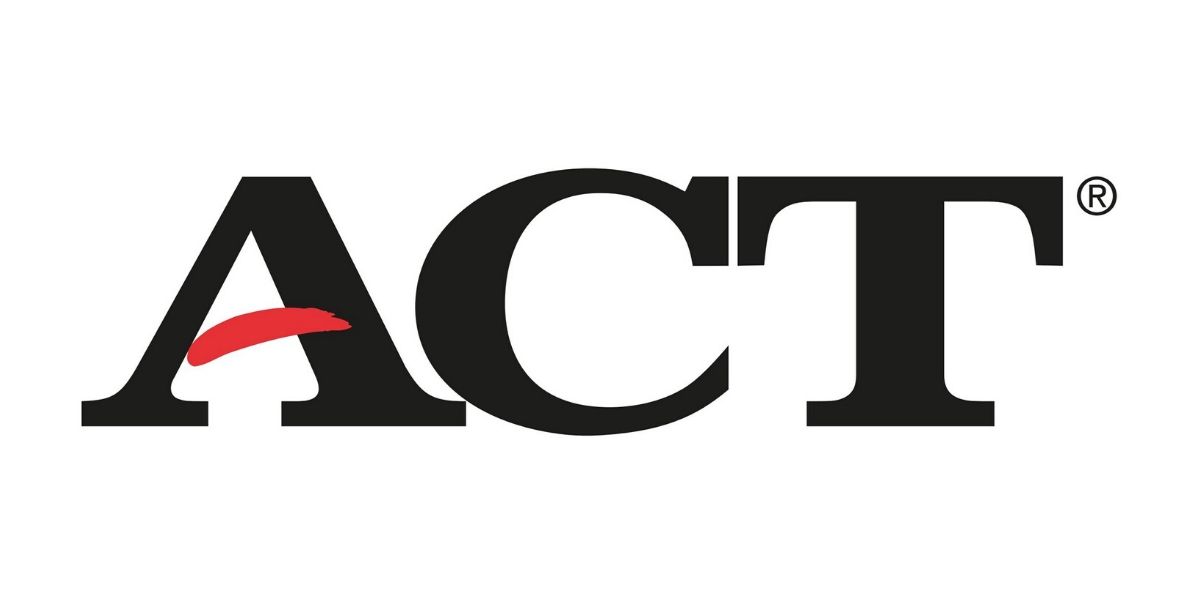Should You Take The SAT Or The ACT?
You might be wondering which test you should take, the SAT or ACT? This is a question we get a lot here at Prep Expert, and there are several different answers that can apply.
The tests are slightly different, particularly when it comes to science questions and calculator usage, but ultimately, it’s a personal decision that will depend on your academic goals.
Remember: if you’re looking for help on the ACT, check out our ACT prep courses, and if you’re looking for help on the SAT, check out our SAT prep courses!
[sat_one]
Today’s ACT Is A Different Test Than It Was In Years Past, Which May Help You
While the SAT continues to test for student intelligence, the ACT has made it a priority to test more for what one learns in high school, possibly making it easier for GPA-driven students.
Years ago, the answer to this question would have been simple. The ACT was a little-known regional exam, administered mostly in the Midwest, and accepted for application purposes mostly by the colleges and universities in that part of the country. So, the best advice would have been to take the SAT.
However, over the years, the ACT won over many students, parents, and college administrators with its more straightforward approach. The ACT tested students on the skills and topics they had learned in high school, rather than on their innate intelligence, which is the approach the SAT took. As a result, the ACT came to be accepted for application purposes by an increasing number of colleges and universities, and even more, students took the ACT in lieu of the SAT.
[leadmagnet_five]
Gradually, the ACT shockingly overtook the SAT in terms of the total number of test-takers, which caused the College Board, which administers the SAT, to revamp its test to be more like the ACT. Now, almost all colleges and universities accept both the SAT and the ACT.
Overall my students tend to perform just as well on the ACT as they do on the SAT.
That said, some of my students have struggled with the Science Reasoning test on the ACT–it takes some time to get used to. But, if you’re willing to work hard, you can have great success on either exam.
Know Which Test The Colleges You’re Applying To Prefer
Before doing anything, make sure that the college or colleges you want to attend accept either test. If it’s only one of the two, take that one.
As I said earlier, almost all colleges and universities accept both the ACT and SAT for admissions purposes. However, there is a smattering of schools that still only accept either the SAT or ACT. So, you should do your research and make sure that all the schools to which you’re applying to accept either exam. If your dream school happens to only accept the SAT, you’ll obviously want to take that test, and vice-versa with the ACT.
Also, just like most colleges and universities, many scholarship programs these days accept both the ACT and the SAT. However, some are still only accepting one of the tests (on the East Coast, the SAT, and in the Midwest, the ACT). So, do your research and find out which tests the scholarship programs you’re applying to allow and base your decision on what you find out.
If Science Isn’t Your Best Subject, Consider The SAT
The ACT is the only one out of the two that offers a Science Reasoning portion on the test…which could be good for you, or could be not as good for you.
Students who are more familiar with the SAT are sometimes surprised to learn that the ACT has a science component—the Science Reasoning Test. The last multiple-choice section of the test, the Science Reasoning test actually tests your ability to use and analyze data, not your knowledge of content from your high school Biology, Chemistry, and Physics classes. While it does help to know a few basic science topics (like, for example, atomic structure), each passage in the Science Reasoning test provides you with all the information you need to answer its questions correctly. When there is a science term you’re not familiar with, it’s usually easy to use context clues to glean its meaning.
So, just because Science isn’t your strongest subject in school, doesn’t mean you should rule out taking the ACT. But, knowing what I’ve outlined here, if you still think the Science Reasoning test will be difficult or problematic for you, you might be better off sticking with the SAT.
Afraid Of Solving Math Questions Without A Calculator? Consider The ACT
The ACT allows a calculator on the math portion of its exam, whereas the SAT will force you to put your favorite tool away.
My general advice is, whatever exam you decide to take, you should be prepared to answer math questions without your calculator. It is best to solve problems step-by-step with your pencil, so you don’t skip steps or make simple mistakes, and so you can check your work when you’re done.
Your calculator should be used solely to check your work and to do the basic operations and things like graphing. Being capable of answering math questions without your calculator will make you more confident in your problem-solving abilities, which will inevitably lead to your doing better on whichever exam you sit for.
In addition, being prepared to solve problems without a calculator will protect you in the event that your calculator malfunctions or its battery dies, or you forget to take your calculator to the test center on exam day. This probably won’t happen (fingers crossed!), but it’s always best to be prepared.
However, if you simply must have your calculator throughout the Math test, then take the ACT. The ACT has only one Math test, which is overall less difficult than the SAT’s and allows a calculator throughout. The SAT has two math tests, which are more difficult overall, and the first Math test, which is 25 minutes with 20 questions, doesn’t allow a calculator.
“Old” Passages On The SAT Reading Test Can Be A Nightmare
If you perform poorly on the pre-1920s passages on the SAT Reading test, take the ACT, which exclusively uses contemporary pieces.
On the SAT Reading test, the Fiction and Humanities passages often feature pre-1920s writing, which is filled with imagery and metaphorical language, lots of clauses, and some antiquated terms, making them very difficult to read for some students. The Humanities passages oftentimes feature speeches relating to women’s rights or the suffrage movement, and the Fiction passages pieces from authors such as Jane Austen and Virginia Woolfe.
You can prepare for these passages by reading some of these authors, but if you don’t have the time, or if you simply can’t work your way through these passages’ molasses-y language, then you’re probably better of sticking with the ACT.
Whatever You Do: Be More Prepared For One Exam Over The Other
If you’re way more prepared for and familiar with one exam, in particular, you’re already doing it right.
Standardized tests are different than the tests you take in school: they do test your knowledge of content, as well as your skills, but they do so in very specific ways. In order to do your best, you need to be familiar with the format of the test you’re taking, the types of questions you’ll be asked, what wrong answer choices look like, how to pace yourself and prioritize your time, et cetera. This takes lots of work, in the form of completing many practice tests. So, if you’ve invested a lot of time in one of the tests, take that test.
[sat_two]
This isn’t to say that you can’t do the work to familiarize yourself with the other exam, and then take it. But, I’ve had students who were performing great (i.e., very close to a score of 36) on the ACT try taking the SAT, and be very disappointed with their results, and vice-versa. It’s not that they couldn’t do well on the other test—it’s that they weren’t familiar with it yet. It takes work.
So, to quote the song, love the one you’re with, and take the exam you know. You’ll do much better with it.
And Hey, You Can Always Take Both If You Really Want
Although you need to devote time to preparing for both exams individually, there’s no reason you can’t take both. Find out which you perform better on, and then submit that score to your schools.
As I said earlier, preparing for the SAT doesn’t leave you prepared for the ACT, as well. You have to study and learn each exam individually, by takings lots and lots of practice tests. However, if you’re willing to do this, there’s no reason why you can’t take both exams, find out which you do better on, and then submit those scores to the colleges and universities to which you’re applying.
Don’t worry if you do poorly on one of the tests—you’re not required to submit both scores to schools if you’ve taken both. Your schools won’t know you’ve taken the other exam. They’ll only want all your scores from whichever exam you choose to submit.
I don’t necessarily advise taking both exams, because it’s a lot of work to study for both, on top of all your commitments for high school. Keeping up your GPA is very important to your college chances. You certainly don’t want to sacrifice points in order to take both exams.
So put some thought into this—take a couple of practice tests for each, get a feel for each, and then discuss your decision with your parents, teachers, and guidance counselors. One or both of these exams will turn out to be a good fit for you. For more help, check out our website Prep Expert.
[sat_three]
For more test strategy, college admissions, and scholarship application tips sign up for our FREE class happening right now!
Written by Todd Marcus
More from Todd Marcus

ACT Reading Passage Types | What To Expect
Be ready for the ACT Reading section by knowing the kinds of things you'll be reading. Here are the ACT…

Taking The ACT Junior Year
If you're ambitious and want to give yourself plenty of time for score improvement, then consider taking the ACT junior…

ACT 2020 Score Release Dates
Here then are the ACT 2020 score release dates to plan around, as well as, the different kinds of available…